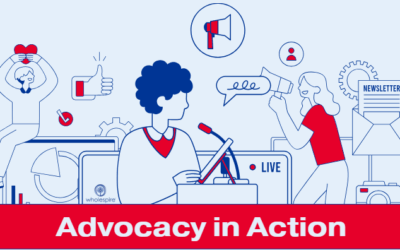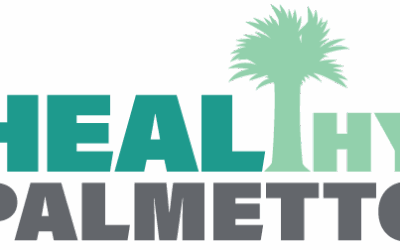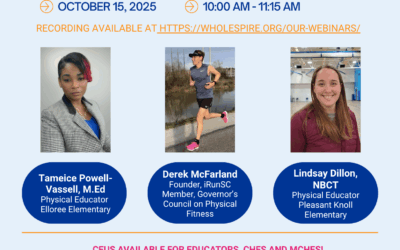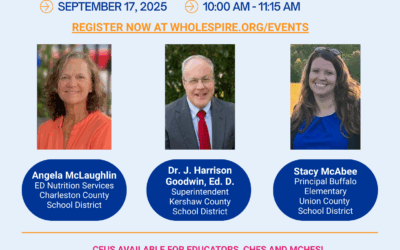Thank you for participating in the Fall 2025 Connecting Communities and Schools Webinar Series. To receive CHES and/or MCHES Category I CECH credits, please complete the pdf linked below and email to Erica Ayers ([email protected]) by December 12, 2025.
community garden
Advocacy in Action: Wholespire at the Joint Citizens and Legislative Committee on Children Hearing
Advocacy is a cornerstone of Wholespire’s approach to driving long-term systems change in South Carolina. Through strategic actions and coalition-building, we work to influence decision-makers, raise awareness, and promote policies that support healthier communities....
Advocacy in Action: Wholespire at the 2025 Food is Medicine Implementers’ Workshop
Meg Stanley of Wholespire and Zack King of DellaRa Consulting represented Food is Medicine South Carolina (FiMSC) at the 2025 Food is Medicine Implementers’ Workshop, hosted by the Center for Health Law and Policy Innovation of Harvard Law School. Held in early...
Healthy Palmetto: A Unified Force for Health in South Carolina
Healthy Palmetto was created with a clear and powerful purpose: to bring organizations together to improve health outcomes across South Carolina. “It was born out of the Live Healthy State Health Improvement Plan,” says Meg Stanley, co-lead of the coalition. “What...
A Message to Our Supporters
Dear Friends of Wholespire, We’re writing to share an important update with you—our valued supporters, advocates, funders, and partners. This year, Wholespire has experienced funding cuts that have required us to make some difficult decisions. Yet even in the face of...
Creating Healthier Communities through Walkability and Active Transportation: Workshop Series Success and Offering
As South Carolina continues to grow, so does the need for communities that support safe, accessible, and inclusive transportation options. Roads must accommodate more than just vehicles—they must serve people. When residents can move around safely—whether walking,...
How Communities & Schools Can Enhance Family Engagement
How Communities & Schools Provide Opportunities for Adult Fitness
Real Talk with Administrators: Creating Connections that Support Student Health
Connecting Communities and Schools Webinar








